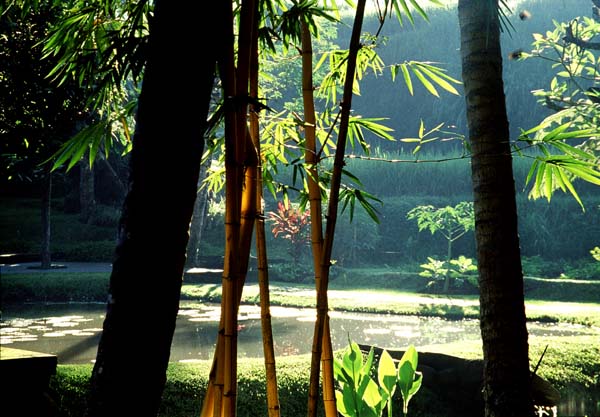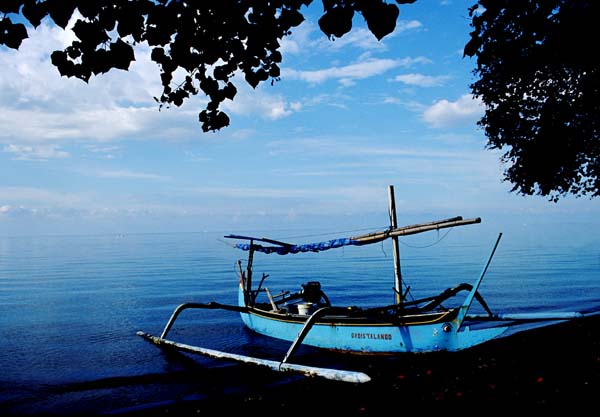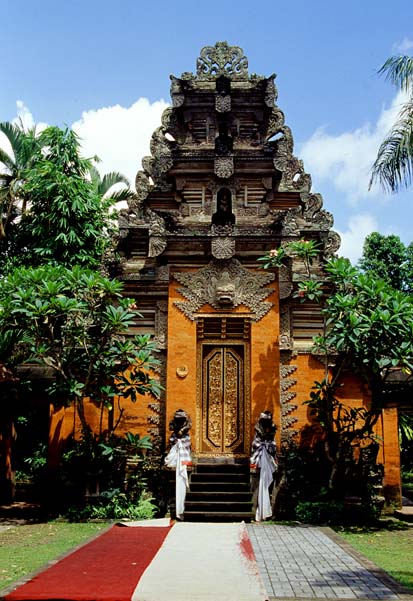Bali, or the Island of the Gods, remains one of Asia’s gems. A paradise island often referred to as the 'Morning of the World' Bali offers any lucky visitor a haven of beautiful beaches, volcanoes, emerald-green rice terraces and colourful traditions never fail to impress, aquamarine seas and a patchwork of emerald rice terraces, the beautifully terraced rice fields which seem to flow down its hillsides.

ID:108070-01052 Bali Island Picture Sources:ccnpic.com Tian Zhan
Bali is one of more than 17 thousands island in Indonesia. From the sheer majesty of the string of ancient volcanoes across the centre of the island. It is located between the two islands Java and Nusa Tenggara. Bali is an island of incredible mystery, beauty, enchantment, culture, hospitality, variety, and serenity.
Both magical and mythical, this land of volcanic lakes, spectacular rice terraces, stunning tropical beaches, ancient temples and palaces is and exotic melting pot of cultures and peoples. Renowned of its unsurpassed architecture, traditional theatre, dance and elaborate religious festivals, the colorful Balinese culture is a dynamic force that is constantly synthesizing the old and the new, the traditional and the innovative.

ID:108070-01096 Bali Island Picture Sources:ccnpic.com Tian Zhan

ID:107702-00159 Bali Island Picture Sources:ccnpic.com Luo Hong
Bali's spectacular beaches, volcanoes, lakes, temples, and terraced rice fields -- combined with its deeply artistic roots and its legendary hospitality -- have made it one of the most visited places on earth. The religion and culture of Bali are unique in the world, and the Balinese have preserved their traditions in spite of the island's growing tourist industry.
While many destinations offer beautiful scenery, few have the variety of Bali, and none has its unique art, culture, and natural hospitality.

ID:10108070-01126 Bali Island Picture Sources:ccnpic.com Tian Zhan

ID:107702-00151 Bali Island Picture Sources:ccnpic.com Luo Hong
As for accommodation, take your pick from five-star resorts overlooking white sandy beaches or lush valleys, to friendly family-run hotels nestled in lush tropical gardens. One thing's for sure, that you won't be disappointed. Whether you stay at Nusa Dua or Sanur in the south, Ubud in the centre or at one of Bali's northern black-sand beach resorts like Lovinia, you'll find the hospitality as warm as the water. Once you've soaked up some glorious Bali sunshine it's time to take a trip inland. This is where you - as I did - will truly fall in love with Bali. Whether you're in the audience at a temple ceremony, admiring one of its immense volcanoes or marvelling at the beautifully crafted rice fields wrapping themselves around hillsides, you can't help but be awed. Be sure to pay a visit to the home of Balinese culture, Ubud.
Packed with art galleries, craft shops selling batiks, hand-made furniture, woodcarvings and paintings, and a wide variety of restaurants to boot, this is the place where you can get a flavour for the real Bali. For the more active there's rafting down the Ayung river, world-class golf and surfing, as well as the option to hire a jeep and explore the island for yourself.

ID:107702-00179 Bali Island Picture Sources:ccnpic.com Luo Hong
Balinese Culture:
Rich in tradition, art and culture also form a large part of Bali's charm. Aside from year-round festivals, almost every day there are colourful processions in the village temples to celebrate weddings, births and funerals. When you arrive in Bali, no doubt your initial impression will be of just how friendly and gentle the smiling Balinese are. That's because on the paradise island of Bali, everything is a cause for celebration.
Balinese Life:
The strong cultural identity of Bali is based on a combination of closely related elements that include its unique religion, its language, its castes, its community life, and its art.
The ancient caste system still alive but no longer of any official or formal significance divides the Balinese into four distinct castes: Priests (Brahmana), Rulers (Ksatria), Warriors (Wesia), and commoners (Sudra). Unlike India, Balinese Hinduism has no 'untouchable' caste. Ninety percent of Balinese are commoners, while the remaining ten percent are divided among the three higher castes.
Numerous ceremonies mark the progression of life in Bali, starting, of course, with birth. Children are treated with respect and gentleness; corporal punishment is rare. In adulthood, marriage becomes compulsory and represents the individual's official entry into the community as an adult. Subsequently, participation in the meetings of the Banjar (village association that manages village affairs) becomes obligatory.

ID:10108070-01076 Bali Island Picture Sources:ccnpic.com Tian Zhan
The management of the all important water supply falls under another essential community organization called the Subak, to which each village landowner belongs. Bali's irrigation system, unique in the world, is managed by these associations, which ensure the fair distribution of water and carry out the traditional ceremonial rites to the gods of agriculture.
No discussion of Bali is complete without mentioning Bali's native inhabitants, the so-called 'Bali Aga'. They are the descendants of the first known inhabitants of Bali, and their customs are of prehistoric origin, long before the arrival of Hinduism. Now their culture represents a unique combination of their animistic origins and Balinese Hinduism. There are only a few villages of Bali Aga left; the two best known are Tenganan in Karangasem and Trunyan in Kintamani, Bangli. (CCNPIC Saijiao He)
(Article Resource: www.ccnpic.com)